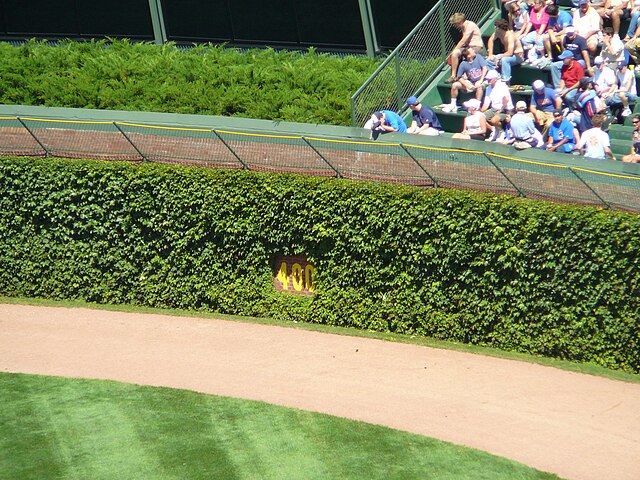A ground rule double is a baseball rule that awards two bases from the time of pitch to all baserunners including the batter-runner, as a result of the ball leaving play after being hit fairly and leaving the field under a condition of the ground rules in effect at the field where the game is being played. An automatic double is the term used to refer to a fairly hit ball leaving the field in circumstances that do not merit a home run, such as when the ball's first bounce was within the field. The automatic double is commonly called a ground rule double.
Outfielders raising their arms, due to the baseball going under or becoming stuck in the fence, resulting in a ground rule double.
Batted balls lodged in the Wrigley Field ivy are ground rule doubles.
Ground rules are rules applying to the field, objects on and near it, and special situations relating to them, in the game of baseball. Major League Baseball has defined a set of "universal ground rules" that apply to all MLB ballparks; individual ballparks have the latitude to set ground rules above and beyond the universal ground rules, as long as they do not directly contradict each other. Additionally, a set of universal ground rules exists for the six MLB stadiums with retractable roofs, with the individual ballparks able to set additional rules.
Fenway Park has a ground rule for balls that hit the top of the ladder on the Green Monster and go out of play—the batter is awarded a ground rule double



